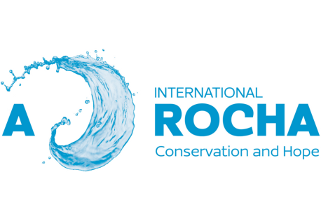Valuing ecosystems
In a Tweet: Ecosystem services are a blunt and problematic tool for valuing nature. We propose an holistic Ecosystem Valuing Framework instead.
Summary
The Ecosystem Services Framework (ESF), by which the value of nature for human well-being is measured and quantified, has become increasingly prevalent, even dominant, in the conservation world and in political and economic decision making, as a means of calculating the relative importance of natural systems and processes. However, ESF is also controversial, praised by some as a means of preventing ‘natural capital’ from being overlooked in decision making , but also accused of a range of inconsistencies including incoherence of definitions and a narrow approach to valuation. In particular there are serious concerns of a tendency to commodify nature and to undervalue those ‘services’ which cannot easily be reduced to economic valuations. Some of the difficulties with ESF are then examined, concluding that the “irreducible plurality of evaluative concepts” (in other words the many distinct ways in which humans value things), mean that ESF needs to be replaced by a more sophisticated and broader mechanism for valuing nature. This paper then proposes an Ecosystem Valuing Framework (EVF) as an alternative that overcomes the problems of ESF. EVF arises from the reformational philosophy of Dooyeweerd and Vollenhoven and specifically the use of Aspectual Theory which identifies 15 fundamentally distinct ways in which humans analyse and value reality. Three of these are foundational, but the remaining 12 aspects can be used within EVF to capture the range of ecological, cognitive, communal and ideological ways in which humans value natural places and entities. It is argued that EVF thus provides a comprehensive, clear and cross-culturally useful alternative to ESF that fits better with scientific and philosophical realities.
Beyond Ecosystem Services: valuing the invaluable
Trends in Ecology & Evolution, Vol. 32:4, 249-257 (2017)
http://dx.doi.org/10.1016/j.tree.2017.01.002
Richard M. Gunton1,2, Eline N. van Asperen3, Andrew Basden4, David Bookless5,6, Yoseph Araya7, David R. Hanson2, Mark A. Goddard8, George Otieno9 and Gareth O. Jones2
1 School of Biology, University of Leeds, Leeds LS2 9JT, UK
2 West Yorkshire School of Christian Studies, Outwood House, Leeds LS18 4JN, UK
3 Department of Anthropology, Durham University, Durham DH1 3LA, UK
4 Salford Business School, University of Salford, Salford M5 4WT, UK
5 A Rocha International, 89 Worship Street, London EC2A 2BF, UK
6 Faculty of Divinity, University of Cambridge, Cambridge CB3 9BS, UK
7 School of Environment Earth & Ecosystems, Open University, Milton Keynes, Milton Keynes MK7 6AA, UK
8 School of Civil Engineering & Geosciences, Newcastle University, Newcastle upon Tyne NE1 7RU, UK
9 School of Arts & Communication, Leeds Trinity University, Horsforth, Leeds LS18 5HD, UK
